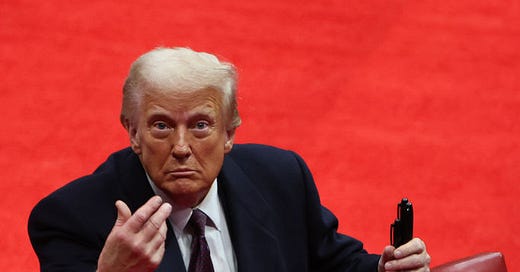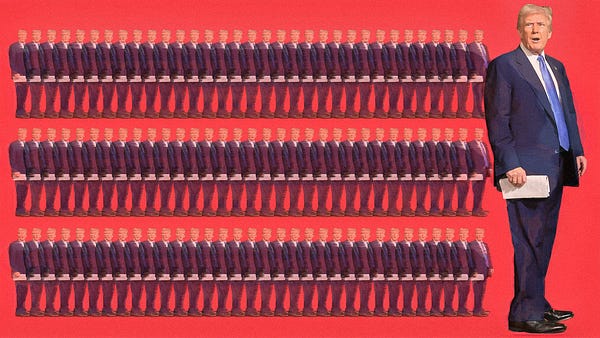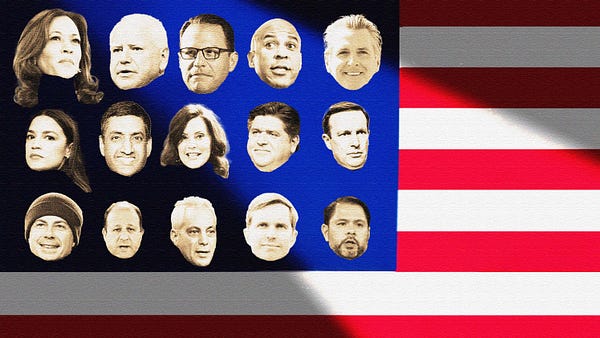
What a difference eight years makes. In 2016, emails from Hillary Clinton’s campaign and the Democratic National Committee were pilfered and publicized by Russian hackers and the press couldn’t stop writing about it. In 2024, allegedly Iranian hackers infiltrated the Trump campaign’s computers and the three media outlets who were sent the goods declined to publish.
Depending on one’s politics, this is either an example of a double standard in favor of Republicans or the evolution of the media’s own norms when it comes to publishing hacked materials. But such easy comparisons are not apt. The Trump hack of ’24 and the Clinton hack of ’16 are two very different things.
To start, the emails Russians stole from the Clinton campaign and the DNC in 2016 were not leaked to a news outlet. They were first published on WikiLeaks and a website created by Russia’s GRU to publicize the material known as DCLeaks. Today the web page displays a warning: “DCLeaks.com was operating as a front for Russian intelligence.” Media outlets that wrote about the hacked Clinton emails were not the gatekeepers for the stolen information. They were playing catch-up with the rest of the internet.
Furthermore, the hacked material on Clinton contained newsworthy information mixed in with irrelevant personal information about some of the campaign’s staffers. Reporters had to dig through the trove to find the gems. But there were gems, such as a devastating memo outlining how the Clinton Foundation was at times a scheme to soak donors for pricey speaking fees for the former president and consulting contracts for Clinton aides.
By contrast, the hacked Trump material thus far seems like a dud. Politico, one of the three outlets approached by an anonymous source with the internal campaign documents, said the source included a vetting document for J.D. Vance and a partial vetting document for Marco Rubio, who was a finalist to be Trump’s vice-presidential nominee.
“These vetting reports are a synthesis of public information, press clippings, financial statements, etc.,” one Trump campaign official told The Free Press. “The campaign has been very disciplined and so has the RNC about the efforts of bad actors to hack us. The most damning stuff about us would be on texts and Signal.”
All of this raises the question of whether the press should ignore tips from hackers if they suspect a foreign country is trying to influence our election. That was the lesson many learned in 2016 and it led to an overcorrection. Social media companies began with the reasonable step of labeling foreign propaganda on their platforms in 2017.
But by 2020, Twitter and Facebook were shadow banning accounts suspected of spreading health disinformation about Covid. And then a few weeks before the 2020 election, the sites took the extraordinary step of initially blocking users from sharing a New York Post exclusive about Hunter Biden’s laptop and the evidence of his own buckraking contained within it. This was based on the false claim, amplified by the Biden campaign, that the laptop leak itself was Russian disinformation.
Perhaps it’s time to accept that in a digital world, foreign election interference is inevitable. Instead of trying to gatekeep the ill-begotten hacks of nefarious actors, the fourth estate should get back to verifying whether the information is true and relevant—what we used to call journalism.
Eli Lake is a Free Press columnist. Follow him on X @EliLake, and read his piece “Kamala Harris and the Election of Laughter and Forgetting.”
Become a Free Press subscriber today:














Part of me thinks these media outlets, having learned from the Billy Bush recording fiasco, see a possible bump for Trump if they publish. So, they would rather starve the story of oxygen than risk it helping him. It's their version of catch-and-kill, perhaps.
While I agree with the final point, I have a hard time believing that the media's recalcitrance has to do with a new set of journalistic ethics. Does the author seriously believe that the media would hold back something that was damaging to the Trump campaign?